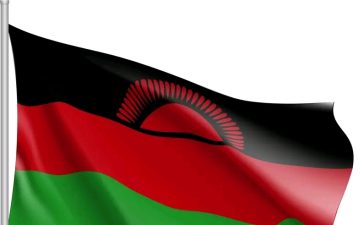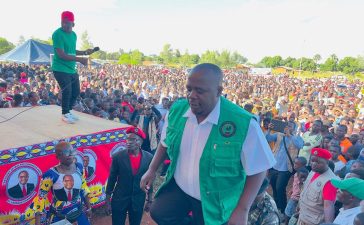In a world where the rule of law is meant to safeguard democratic ideals, it is both alarming and disheartening to witness the rise of individuals who embrace violence as a means to assert power and instill fear in others. Norman Paulosi Chisale epitomizes this troubling phenomenon, embodying a toxic blend of bravado, aggression, and impunity that represents a clear and present danger to the society we strive to build.
Chisale’s name has been irrevocably tarnished by his alleged involvement in violent crimes, including accusations of murder. The tragic death of Issa Njauju serves as a haunting reminder of the lengths to which Chisale is willing to go to silence dissent and maintain his grip on what he perceives as political power. Instead of being held accountable for such heinous acts, Chisale has seemingly taken pride in cultivating a reputation as a ruthless and violent individual, fostering an environment where intimidation reigns supreme.
His behavior is not just a personal failing; it is a dangerous manifestation of a larger societal issue. By wielding violence as a weapon, Chisale sends an unequivocal message: dissent will not be tolerated, and those who oppose him will face dire consequences. Such intimidation tactics are an affront to democracy and the principles of free expression that underpin it. They create a chilling atmosphere where individuals are left to wonder whether expressing their views will result in retaliation, thereby stifling open dialogue and debate.
Chisale’s public displays of aggression, including threats issued from political podiums and the alarming sight of him carrying a firearm during political rallies, set a dangerous precedent. As a self-proclaimed director of youth for the Democratic Progressive Party (DPP), he is not only undermining the rule of law but also misguiding the very youth he claims to represent. How can we expect the next generation to cultivate a spirit of constructive engagement and civic responsibility when their role model advocates for violence and fear?
The fact that Chisale is not an official of state security makes his flaunting of firearms even more egregious. The law is clear: carrying weapons in public places poses a significant risk to public safety and undermines the fundamental tenets of a lawful society. Yet, Chisale operates under an illusion of untouchability, shielded by political connections and the deluded belief that fear is an acceptable tool for governance. This miscalculation threatens to plunge us deeper into a cycle of violence and instability, where the voices of reason are drowned out by the zealous clamor for dominance through intimidation.
It is imperative that we, as citizens, do not remain silent in the face of Chisale’s brazen display of violent posturing. We must rise to expose and condemn this culture of fear, asserting our collective commitment to upholding the rule of law and the values that define us as a society. Political leaders, fellow citizens, and law enforcement must unite to challenge the notion that violence can ever be acceptable in the pursuit of power.
Let us be clear: true leadership is not about instilling fear but fostering trust. It is time to reclaim our political discourse from the clutches of intimidation and chaos. We must demand accountability for all individuals, regardless of their political affiliations, and refuse to accept the normalization of violence as a legitimate pathway to power.













